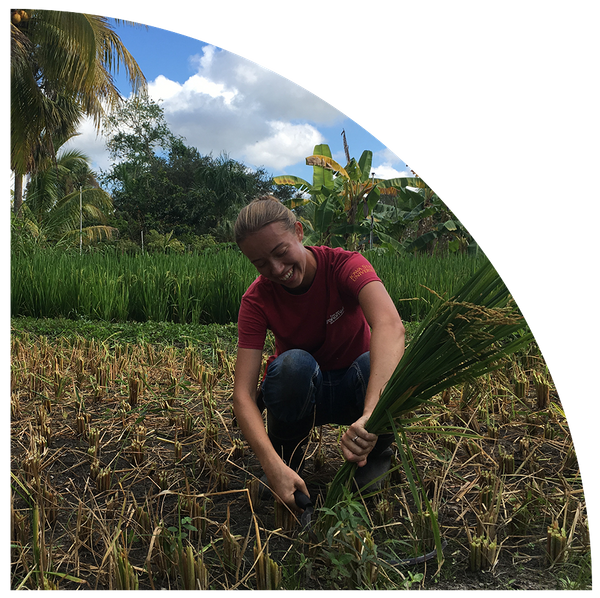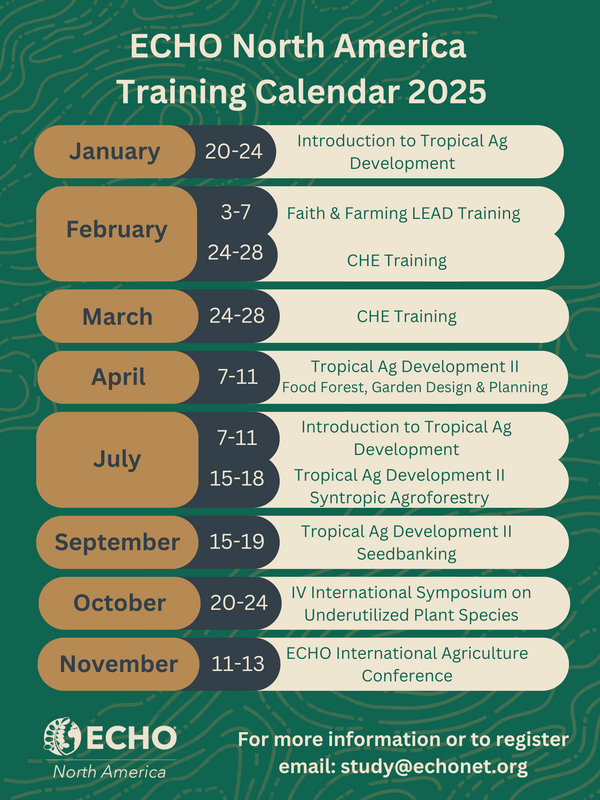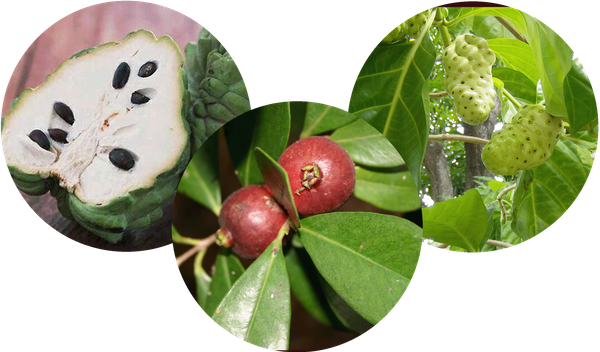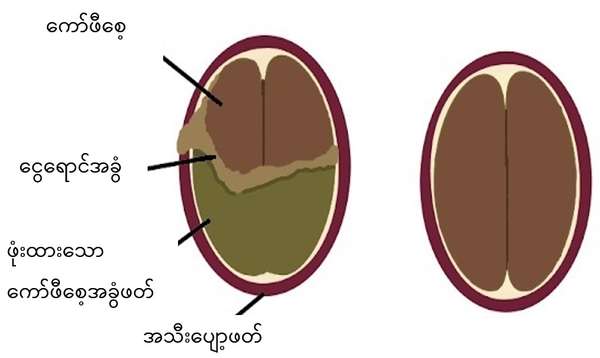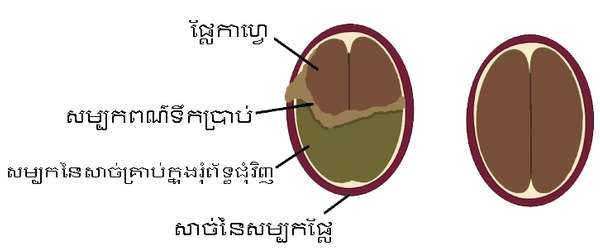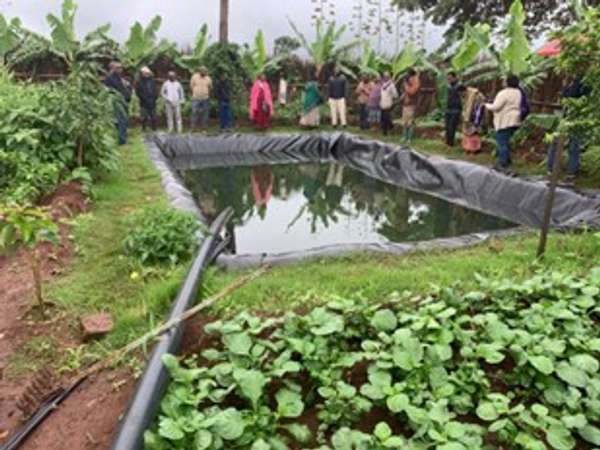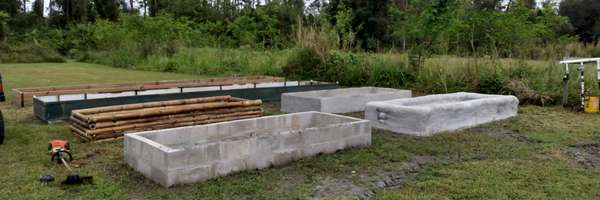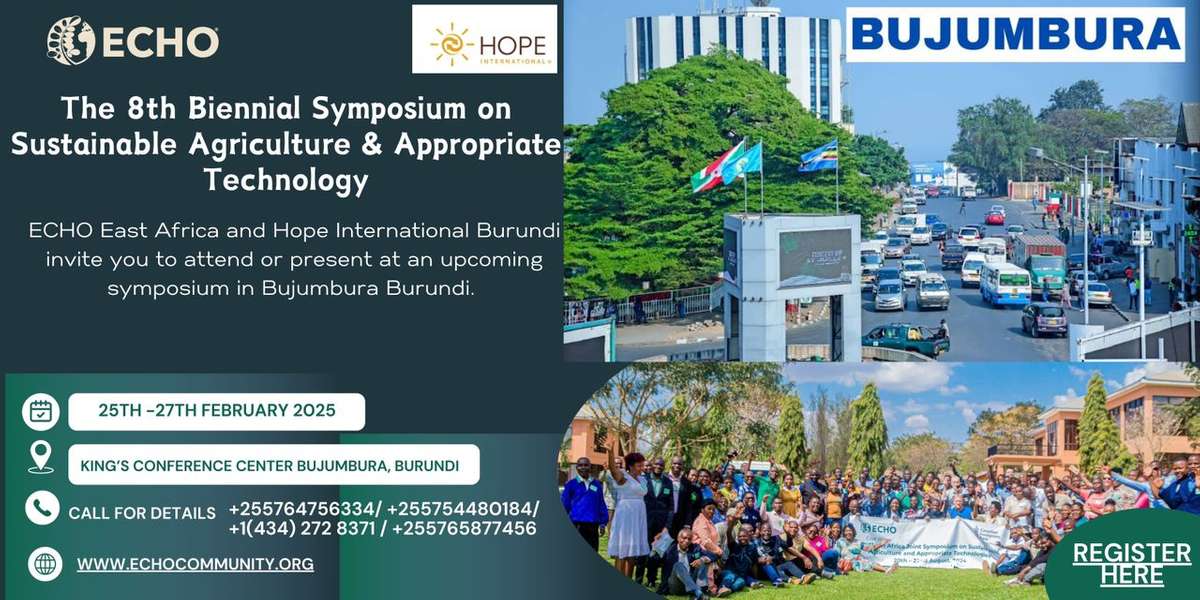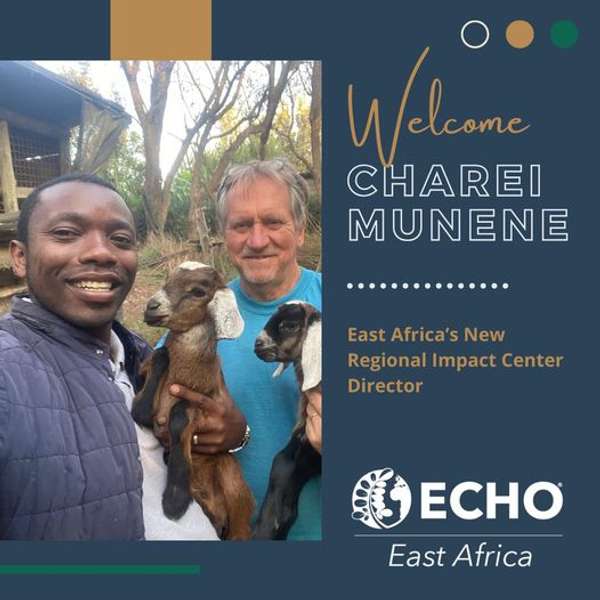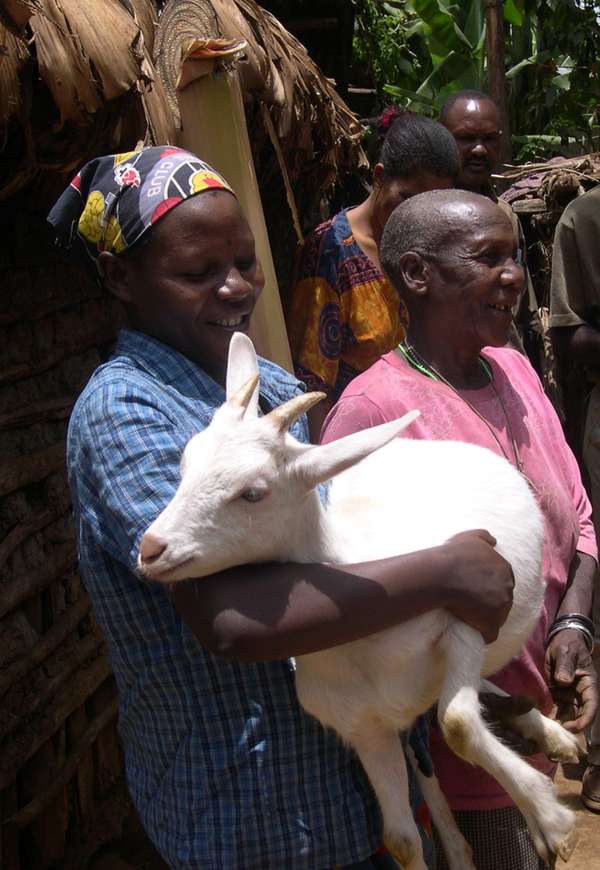ECHOcommunity Actualizaciones
2025/2026 ECHO North America Internship Application Deadline 2025-01-14
We are looking for passionate, mission minded, farm loving applicants for the 2025/26 ECHO North America Regional Impact Center internship. This year-long program is an intensive hands-on training in tropical agriculture for community development.
Apply soon! Applications close January 20th. Use the link below for more information about the internship and how to apply.
ECHO North America 2025 Upcoming Trainings 2025-01-07
We have some exciting training opportunities coming up in 2025!
Registration for these trainings include:
- Instruction with on-farm workshops
- Consultation with experienced staff
- Food (breakfast, lunch and dinner)
- Lodging
Don’t miss the these training opportunities!
Seasonal Seeds Available from the ECHO Global Seed Bank 2024-12-24
Some seeds are only seasonally available from our ECHO Global Seed Bank due to their short lifespan. We would like you to know that we have the following seeds available right now. Click the crop name for more information:
- Green sugar apple (Annona squamosa) is a medium to tall tree that produces sweet, creamy fruits. Fruits are mature when green.
- Atemoya (Annona squamosa X cherimola) is a deciduous fruit tree up to 7m tall. Cross between sugar apple and cherimola.
- Noni (Morinda citrifolia) is a small tree from Southeast Asia that is tolerant of a wide range of soil conditions. Noni is often used medicinally.
- Strawberry fruit (Muntingia calabura) is a fast-growing, fruit producing shade tree. Edible, sweet red fruit.
ကျွဲနွားတိရစ္ဆာန်အတွက်အစာအဖြစ်အစားထိုးရန်ကော်ဖီစေ့အခွံမျာ 2024-12-19
ဤဆောင်းပါသည် ဘွန်ဆွန်း သန်ရှရီသွန်၊ အေဘရမ် ဂျေ၊ ဘစ်လာ နှင့် ပက်ထရစ် ဂျေ၊ ထရေးလ်တို့မှပြုလုပ်ခဲ့သည့် အီးစီအိပ်ချ်အို သုတေသနကို အကျည်းချုပ်ထားခြင်းဖြစ်သည်။
ထို့အပြင် ကော်ဖီစေ့အခွံဖတ် ၂၀၀ ဂရမ်သို့မဟုတ် ၁ကေဂျီ ရှိသည့်လယ်ယာ-ထုတ် ထပ်ဆောင်းအစာကိုမစားမီနှင့် စားပြီး သည့်နွားများ၏ခန္ဓာတွင်းရှိစဲလ်အရေအတွက်ကိုတိုင်းတာရာတွင်စာရင်းကိန်းဂဏန်းအရသိသာထင်ရှားသော ခြားနားမှုကိုတိုင်းတာမှုအားလုံးတွင်မတွေ့ရပါ။စမ်းသပ်မှုအားလုံးတို့တွင်ခန္ဓာတွင်းရှိစဲလ်အရေအတွက်များသည်နို့စိမ်း အတွက် ထိုင်းနိုင်ငံ စိုက်ပျိုးရေးစံချိန် သတ်မှတ်ချက်အတိုင်းအတာဖြစ်သည့် ၅၀၀,၀၀၀ စဲလ်/မီလီ အောက် တွင်ရှိ သည်(စိုက်ပျိုးရေးဆိုင်ရာကုန်ပစ္စည်းနှင့်အစားအသောက်ဆိုင်ရာစံနှုန်းများ နယ်ရှင်နယ် ဘရူရို၊ ၂၀၁၀)။ (ပုံ ၁၂)
សម្បកគ្រាប់ខាងក្នុងកាហ្វេជាអាហារបំប៉នសម្រាប់គោក្របីយកទឹកដោ 2024-12-18
អត្ថបទនេះសង្ខេបពីការស្រាវជ្រាវរបស់អេកូ ដែលផលិតឡើងដោយ Boonsong Thansrithong, Abram J. Bicksler, និង Patrick J. Trail ។
បុគ្គលិកអេកូអាស៊ីបានធ្វើការស្រាវជ្រាវនេះ ដោយមានគោលបំណងសំខាន់ក្នុងការជំនួសផ្នែកមួយនៃសមាសធាតុជាតិសរសៃដែលបានទិញនៅក្នុងចំណីគោយកទឹកដោះ ជាមួយនឹងម្សៅកាហ្វេដោយឥតគិតថ្លៃ និងវាយតម្លៃផលប៉ះពាល់របស់វាទៅលើការផលិតទឹកដោះគោ។ ការស្រាវជ្រាវរបស់យើង គឺពាក់ព័ន្ធនឹងតំបន់ដែលសម្បកគ្រាប់ខាងក្នុង (parchment) កាហ្វេមិនមានតម្រូវការខ្ពស់ ហើយអាចទទួលបានដោយមិនគិតថ្លៃ។ កសិករដែលចាប់អារម្មណ៍លើជម្រើសចំណីនេះ ត្រូវតែគិតពីពេលវេលា កម្លាំងពលកម្ម និងថ្លៃដឹកជញ្ជូនដែលទាក់ទងនឹងការប្រើប្រាស់ធនធានកាហ្វេ។
EDN Número 167 Disponible Ahora 2024-12-17
Temas de Relieve
- Cosecha de agua con hafirs: lecciones de África Oriental
- Ecos de nuestra red: Seis principios sobre el mulch
- Del Banco de Semillas de ECHO: Frijol adzuki
- Libros, Sitios Web y Otros Recursos: Herramientas para la selección de cultivos infrautilizados - VACS Explorer, CropBase, ISHS Symposium on Underutilized Crop Species y otras
Cosecha de agua con hafirs
Harold Msanya
Extracto:
Asegúrese de que el sistema de salida esté diseñado, instalado y conectado correctamente para regular la liberación de agua desde el hafir con eficiencia y seguridad. El sistema de salida debe ser fuerte, fácil de operar y apropiado para los requisitos específicos del uso del reservorio, ya sea para riego, ganado o uso humano. Tiene que ser accesible para que se inspeccione y dé mantenimiento con regularidad. Incluya mecanismos para limpiar desechos u obstrucciones sin tener que necesitar equipo complejo o una perturbación significativa para el reservorio. Integre un desagüe o vertedero de emergencia cerca de la salida para evacuar el excedente de agua durante precipitación fuerte o inundación, reduciendo el riesgo de daño al reservorio o a la infraestructura circundante. Adecúe el sistema de salida en función del uso principal del hafir. Por ejemplo, una estructura de salida de varios niveles puede servir a varias necesidades, como agua para riego en un nivel y para ganado en otro.
From the Farm: Permanent Raised Beds at ECHO North America 2024-12-10
Utilizing raised beds has been a critical component to a successful seed production program for our Seed Bank at ECHO North America. For years we have followed the industry standard practice of temporary raised beds covered with plastic mulch. With no real use for the plastic after the year’s production cycle, we would begrudgingly discard the plastic in the garbage. The effort, expense, tillage, and waste in re-raising beds each year started us on a quest to find a more appropriate solution: is there a better option out there?
To answer this question, we are testing various designs for permanent raised beds. For the first round of testing, we have built beds out of six different materials: bamboo, recycled metal roofing, wood, concrete block, earthbag, and ferrocement. While initial investment cost is a major factor, the expected useful life, maintenance costs, usable growing area, and productivity of each bed will be important considerations.
After an evaluation period, we hope to convert much of our Seed Bank production into permanent raised beds. While we don’t expect one clear winner for all contexts, we hope some of the lessons we are learning in this process might help others determine what the best option might be for them. Stay tuned for more updates along the way!
Welcome Charei Muene, ECHO East Africa Regional Impact Center Director 2024-11-19
ECHO is excited to announce that Mr. Charei Munene has joined us as our new ECHO East Africa Regional Impact Center Director. Charei is a passionate advocate for farmers and a leader in Agroecology and Ecological Organic Agriculture, bringing over 10 years of experience in the African agricultural landscape. Our outgoing East Africa Director, Mr. Erwin Kinsey, will be working alongside Charei and transitioning out in the months to come.
We feel very blessed to work alongside these diligent workers. Please join us in welcoming Charei to the ECHO team!
Best Practice Note 9: Livestock Projects Now Available! 2024-11-12
This ECHO Best Practice Note distills insights from farmers and other specialists who collaborated in promoting livestock as a means to improve rural livelihoods. The author’s experience affirms that livestock are indeed a beneficial part of most agricultural systems, contrary to some modern theories of their obsolescence. I am not referring here to factory-farming but rather to animal raising by smallholder farmers and small-herd pastoralism. Livestock keeping by smallholder farmers and pastoralists, though very different, generally can add value, nutrition, and income diversification to low-income homesteads as well as bolster a viable rural credit program. Passing female offspring on to other resource-limited families, with good local supervision in the selection and preparation of the recipients, has proven successful and creates a local livestock production system.
Excerpt:
Livestock projects are an impetus for introducing environmentally sound farming practices like agroforestry, zero-grazing, proper soil and water conservation, and adoption of animal-friendly practices like provision of feed and water, regular veterinary services, improved breeding initiatives like artificial insemination, and local vaccination programs. East Coast Fever vaccination in cattle and Newcastle disease control in chickens are vital to thriving livestock programs. In the case of Newcastle disease control, developing a sustainable vaccination service by farmers themselves is important because services are too cumbersome for the government to provide countrywide.
